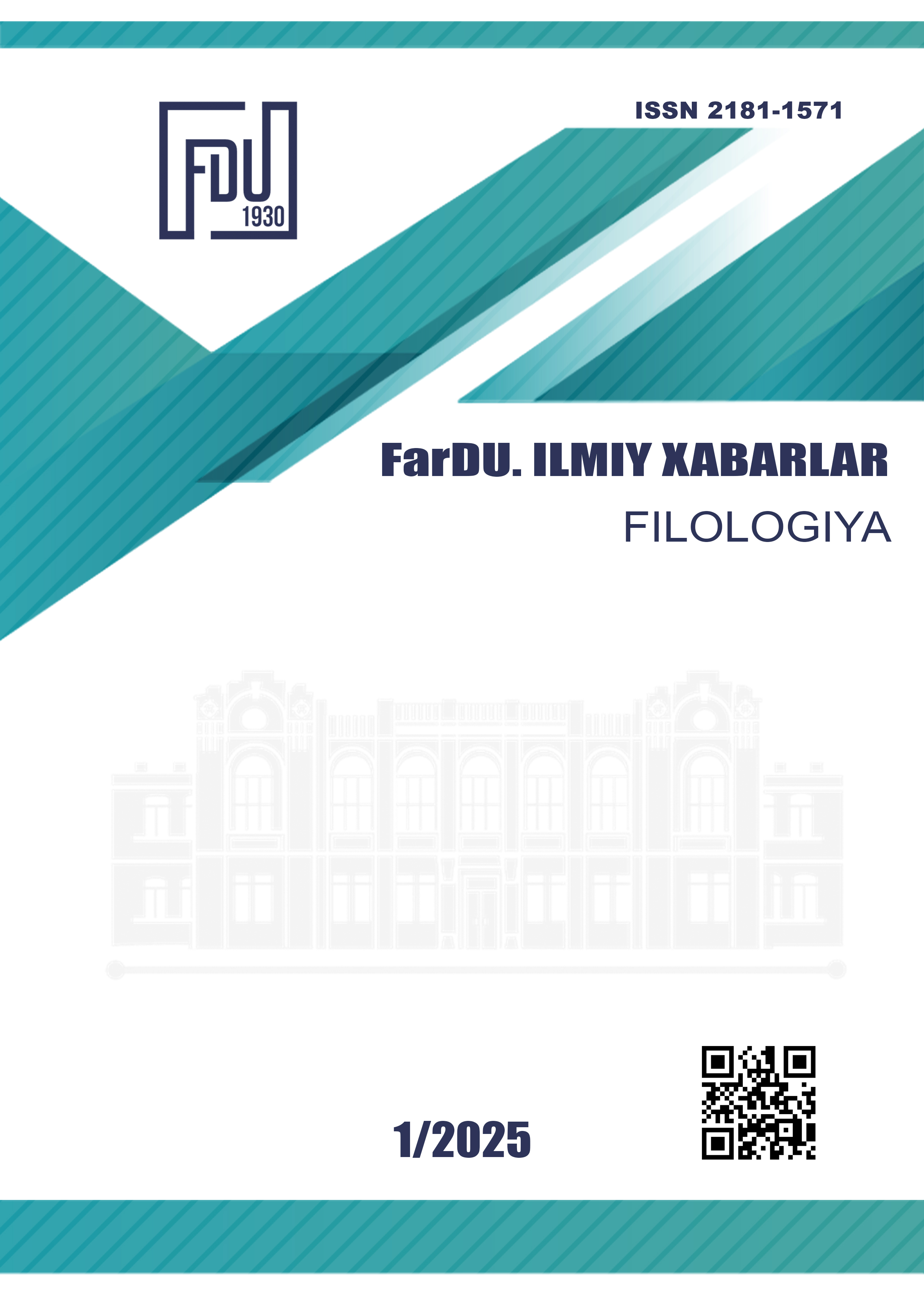MORPHO-PRAGMATICS AND PRAGMASYNTACTIC INTERPRETATION
Keywords:
pragmatics, morpho-pragmatics, pragmasyntactics, speech acts, linguistic interpretation, pragmatic functions, contextual analysis, communicative competence, pragmatic strategies, politeness theory, syntax-pragmatics interface, relevance theory, pragmatic markers, discourse analysis, linguistic structures, language and context, semantic-pragmatic relations, pragmatic universals, cross-cultural pragmatics, cognitive pragmaticsAbstract
This paper delves into the intersection of morpho-pragmatics and pragmasyntactic interpretation, two subfields of linguistics that explore how morphological forms and syntactic structures influence pragmatic meaning in communication. Morpho-pragmatics investigates the role of morphology (such as inflections, pronouns, and verb forms) in shaping the social and pragmatic aspects of communication, such as politeness, formality, and respect. Pragmasyntax, on the other hand, focuses on how the syntax of sentences, including word order and sentence structure, reflects pragmatic functions like emphasis, politeness, and speaker intentions. This paper argues that both morphology and syntax are not just vehicles for conveying literal meaning, but are deeply intertwined with the social context of communication, reflecting power dynamics, relationships, and social norms. Through an empirical analysis of real-world data from different languages - specifically English, Spanish, and Japanese - the study highlights how speakers use different morphological and syntactic strategies to achieve specific pragmatic outcomes, such as requests, apologies, and assertions. Drawing on a variety of linguistic theories, including speech act theory, politeness theory, and pragmatics, this paper demonstrates that linguistic structures cannot be understood in isolation, but must be analyzed in light of the pragmatic context in which they occur. By examining examples from both formal and informal registers of language use, the study illustrates how morpho-pragmatics and pragmasyntax shape communication by encoding not just the content of the message but also the interpersonal dynamics between speaker and listener. The findings emphasize the importance of considering both form and function in linguistic analysis and contribute to our understanding of how language functions in real-world communication.
References
Исмоилов Р. Коммуникатив прагматикада сўзлар ва уларнинг функциялари. – Тошкент: Фан нашриёти, 2017. – 110 б.
Brown, P., & Levinson, S. C. Politeness: Some Universals in Language Usage. – Cambridge: Cambridge University Press, 1987. – P. 345.
Bucholtz, M., & Hall, K. Identity and Interaction: A Sociocultural Linguistic Approach // Discourse Studies. – 2005. – № 7 (4-5). – P. 585-614.
Halliday, M. A. K. Language as Social Semiotic: The Social Interpretation of Language and Meaning. – London: Edward Arnold, 1978. – P. 256.
Searle, J. R. Speech Acts: An Essay in the Philosophy of Language. – Cambridge: Cambridge University Press, 1969. – P. 203.
Bardovi-Harlig, K., & Hartford, B. S. Interlanguage Pragmatics: Exploring Institutional Talk. – Mahwah, NJ: Lawrence Erlbaum Associates, 1996. – P. 248.
Goffman, E. Interaction Ritual: Essays in Face-to-Face Behavior. – New York: Doubleday Anchor, 1967. – P. 256.
Ismailov, R. Kommunikativ pragmatikada so‘zlar va ularning funksiyalari. – Toshkent: O‘zbekiston Matbuot, 2017. – B. 207.
Haugh, M. Im/Politeness Implicatures. – Berlin: Mouton de Gruyter, 2015. – P. 320.
Azimov, D. O‘zbek tilidagi morfologik tuzilish va uning pragmatik funksiyalari. – Samarqand: Samarqand Davlat Universiteti, 2018. – B. 210.
Baxtiyorov, A. Tilshunoslikda pragmatikaning ro‘li. – Toshkent: O‘zbekiston Yozuvchilar Uyushmasi, 2015. – B. 186.
Chomsky, N. Aspects of the Theory of Syntax. – Cambridge, MA: MIT Press, 1965. – P. 251.
G‘afurova, F. O‘zbek tilida pragmatik tushunchalar va ularning o‘zgarishi. – Toshkent: O‘zbekistan Milliy Universiteti, 2019. – B. 159.
Karimova, S. Pragmatikaning tilda va nutqdagi o‘rni. – Toshkent: Universitet nashr, 2020. – B. 199.
Raxmatullayeva, Z. O‘zbek tilida pragmatikaning asosiy tamoyillari. – Toshkent: O‘zbekistan Milliy Universiteti, 2014. – B. 141.
Mahmudov, D. O‘zbek tilida kommunikativ strategiyalar. – Toshkent: O‘qituvchi, 2021. – B. 174.
Mustafoyeva, L. Pragmatik yondashuv va uning tildagi roli. – Toshkent: O‘zbekiston Yozuvchilar Uyushmasi, 2016. – B. 123.
Nematova, X. O‘zbek tilidagi pragmatik me‘yorlar. – Samarqand: Samarqand Davlat Universiteti, 2018. – B. 156.
Nida, E. A. The Theory and Practice of Translation. – Leiden: Brill, 1969. – P. 230.
Шамсиев А. Pragmatik kommunikatsiyada tilning ro‘li. – Тошкент: Фан нашриёти, 2017. – 150 б.
Абдураҳмонов Б. Лингвистик прагматика ва уни ўрганиш йўллари. –Тошкент: Фан нашриёти, 2010. – 150 б.
Downloads
Published
Issue
Section
License
Copyright (c) 2025 Scientific journal of the Fergana State University

This work is licensed under a Creative Commons Attribution-NonCommercial-NoDerivatives 4.0 International License.
How to Cite
Most read articles by the same author(s)
- , , LINGUOCOGNITIVE ANALYSIS BASED ON ENGLISH AND UZBEK PROVERBS , Scientific journal of the Fergana State University: No. 3 (2025): FarDU.Ilmiy xabarlar jurnali (Filologiya)

